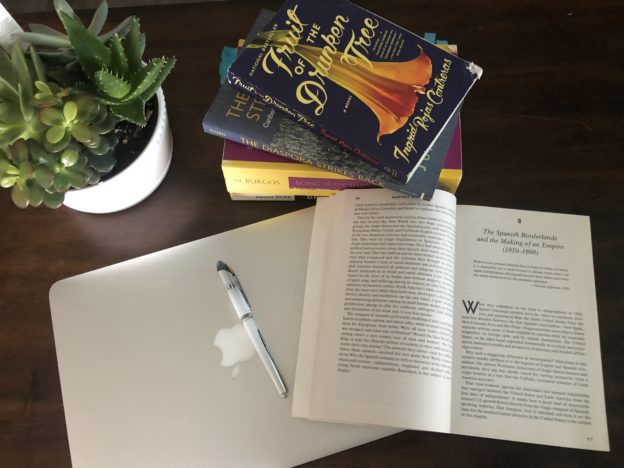Category: Pedagogy
-
Cameras Optional, Please! Remembering Student Lives As We Plan Our Online Syllabus

As I prepare for my day of Zoom, WebEx, and MicroSoft Office meetings, a guy stands outside my bathroom window. My meeting starts at 9:30. It is 9:00 now. So much for that bath–or even a quick shower ahead of my meeting. Another guy happens to be outside my living room window, exactly 1 foot […]
-
“Why are so many of your @CUNY colleagues dying?”

“Why are so many of your @CUNY colleagues dying?” For those not on Twitter, I have cut-and-pasted this Twitter thread as a blog. 1-“Why are so many of your @CUNY colleagues dying?” This is the question I’m being asked since an @insidehighered article reported on 38+ faculty and staff COVID deaths. No one has even […]
-
Both a Grad Student and Instructor: Advocating for Compassionate Teaching During a Global Health Pandemic

The Spring 2020 semester is over and now it’s time to to reflect on what teaching during this seemingly apocalyptic semester meant to me. For many teachers and instructors, Covid-19 transformed how we interacted with our students and approached our pedagogical methods because we could no longer see or engage with our students in person […]
-
Open Resources to Grow Pedagogies of Care: Student-Centered and Adaptive Strategies

Sixteen leading college and university educators have produced a collection of open-source resources, which focus on the notion of care, to share expert insights for faculty amid emergency remote instruction. The materials are based on pedagogy from their recent books, all of which have been —or will soon be—published, in West Virginia University Press’ Teaching […]
-
Leading Synchronous Discussions: Challenges and Recommendations

This post was co-authored with HASTAC Scholar Shari Wejsa. You may have been there this year…countless times…attempting to engage with your students during a Zoom session while getting cryptic silences and blank stares in return. The diagnosis? Zoom fatigue. As instructors, what can we do to connect with our students in an online environment while […]
-
Asynchronous Discussions Online: Challenges and Suggestions

Asynchronous Discussions Online: Challenges and Suggestions This blog post was co-authored with HASTAC Scholar Norah Elmagraby. You may have heard the anecdote from a friend. Or you may have experienced it yourself. You log into your online course to contribute your weekly post to the discussion thread. You try to navigate your way through the comments shared […]
-
Every Fall Syllabus Needs an “Or” Option

This post was originally published here on May 23, 2020. By the end of summer, we all will have reinvented our syllabi to account for varying degrees of hybrid teaching. We will have reimagined the structure of our semesters to make our syllabi and ourselves flexible enough to fit the circumstances, whatever they may be, […]
-
Scaffolding the Skills to Build an Anti-racist Future: How to Use a “Navigational Log” in the Literature Classroom

Image description: a row of texts I’ve assigned in my literature courses related to human rights, transnational American literature, migration, and Chicanx studies. This blog post provides a detailed account of how I implement the “Navigational Log” in my courses to scaffold the skills of close reading, critical thinking and reflection, listening, and dialogue. It builds […]
-
Spliced Schooling (Part 1)

The news is playing again. There are some more educational experts on television speaking about education with Anderson, Rachel, Cuomo and D. Lemon (my favorite journalists), but where are the teachers’ voices? Let’s get after it! We are here, and yes, we are thinking about how we are going to embark on ESY. Yes, summer school. […]
-
Examining glitches, switches, and weaponized elements of educational technologies

Image Credit: Raoul Roberts created the above visualization titled Glitches, Switches, and Weaponized Elements inspired by our class session and readings. His reflections on the class session and explanation of the visualization are included in his reflection. The Context In spring 2020, the students and educators in our class Engaged Teaching and Transformative Learning in the Humanities and Social […]